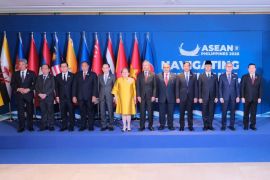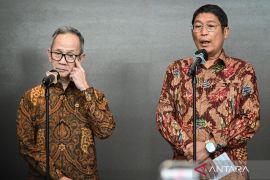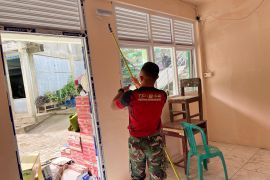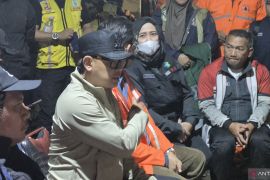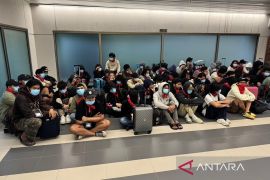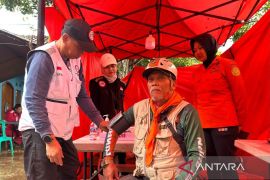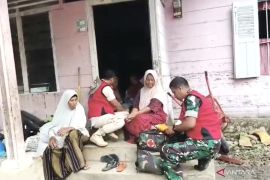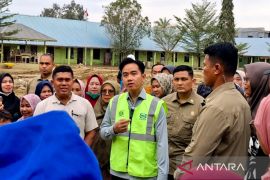"The witnesses were questioned in the case against S," chief of the KPK Media and Information Section Priharsa Nugraha said, referring to the ministrys director of demographic administration information management who had been named as a suspect in the case.
The witnesses were chief of the population identity sub-directorate of the ministrys directorate general of demography and vital statistics Drajat Wisnu Setyawan and home affairs ministry employees Pringgo Hadi Tjahyono, Husni Fahmi and Suciati.
The other witnesses were former president director of the state printing company Percetakan Negara RI (PNRI) Isnu Edhi Wijaya, PNRI production director Yuniarto, private employee Andres Ginting and PT Quadra Solutions finance director Willy Nusantara Najoan.
On Tuesday, the KPK named the director of demographic administration information management as a suspect in the case.
The anti-graft body believes that S had abused his power in the project, which was worth Rp6 trillion.
To probe alleged corruption charges in the electronic identification cards (e-KTP) project, the KPK on Tuesday searched the office of the directorate general of demography and vital statistics at the home affairs ministry.
Information about the alleged graft case came to light after the KPK received tip-offs from the public in 2012.
"This is the publics complaint. Of course, one of the pieces of information may come from M. Nazaruddin, but the report did not serve as a basis for conducting investigation. A group of people had reported it (the alleged graft case) to the KPK," KPK spokesman Johan Budi said.
Nazaruddin, who is a former treasurer of the Democrat Party, is currently serving a prison term after being convicted on a corruption case.
In September 2013, Nazaruddin informed the KPK about alleged corruption in the procurement of E-KTP, including the alleged flow of funds to a number of House of Representatives (DPR) members.
The E-KTP program was carried out in 2011 and in 2012.
The first phase of the program, which targeted 67 million citizens, was started in August 2011. During the implementation phase, the program encountered several problems related to the availability and distribution of necessary instruments. (*)
Editor: Heru Purwanto
Copyright © ANTARA 2014

